IT HAPPENED ONE NIGHT (1934)
A reporter trailing a runaway heiress for a big story joins her on a bus heading from Florida to New York, and they end up stuck with each other....
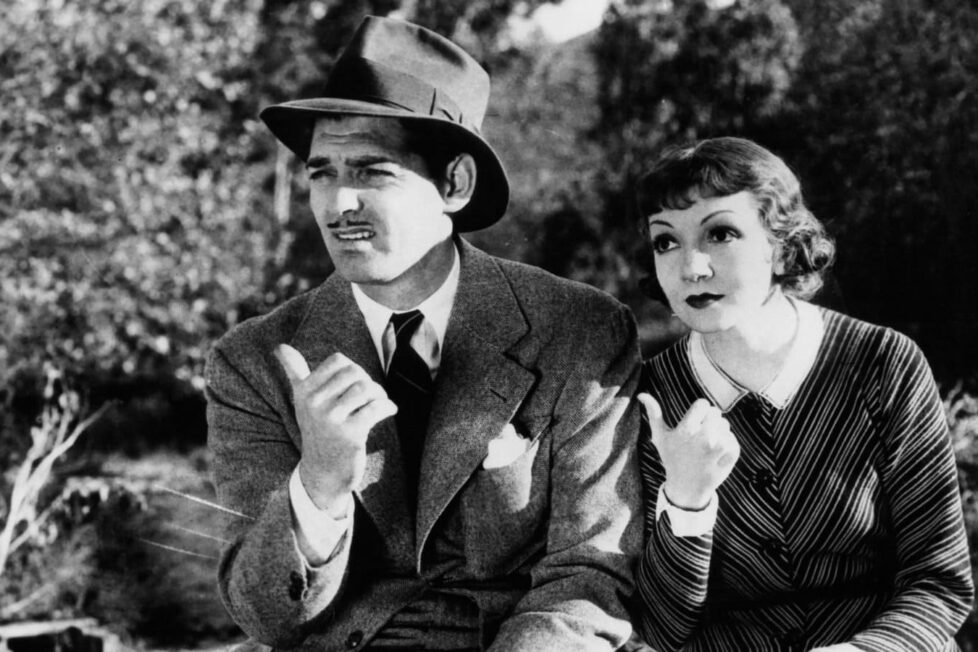
A reporter trailing a runaway heiress for a big story joins her on a bus heading from Florida to New York, and they end up stuck with each other....


The Oscars are fast approaching. While many, including myself, have bemoaned the lack of risk and diversity that the Academy has shown, it’s undeniable they’re still one of the most prestigious awards in cinema. However, in the ceremony’s near-century-long history, only three films have ever swept the “Big Five” categories: ‘Best Picture’, ‘Best Director’, ‘Best Adapted’ or ‘Original Screenplay’, ‘Best Actor’, and ‘Best Actress’.
The most recent was The Silence of the Lambs (1991), a tour de force thriller that still holds up to this day. Before that came One Flew Over the Cuckoo’s Nest (1975), which captivated audiences with its harrowing drama, shaking audiences to their very core. However, the film that first achieved the remarkable feat of winning all five major Oscars was It Happened One Night at the Academy’s 7th ceremony in 1934. 90 later, it’s plain to see why…
Our story centres on Ellen “Ellie” Andrews (Claudette Colbert), daughter of a controlling, albeit quite wealthy, man. Determined to be with her newly eloped husband King Westley (Jameson Thomas), whom her father Alexander (Walter Connolly) suspects is only interested in her money, Ellie flees from home and boards a bus from Miami to New York. There, she encounters the gruff yet captivating Peter Warne (Clark Gable), a smooth-talking newspaperman who quickly uncovers her true identity. If Ellie is ever to reach New York and be reunited with her husband, she will have to rely on Peter’s help.
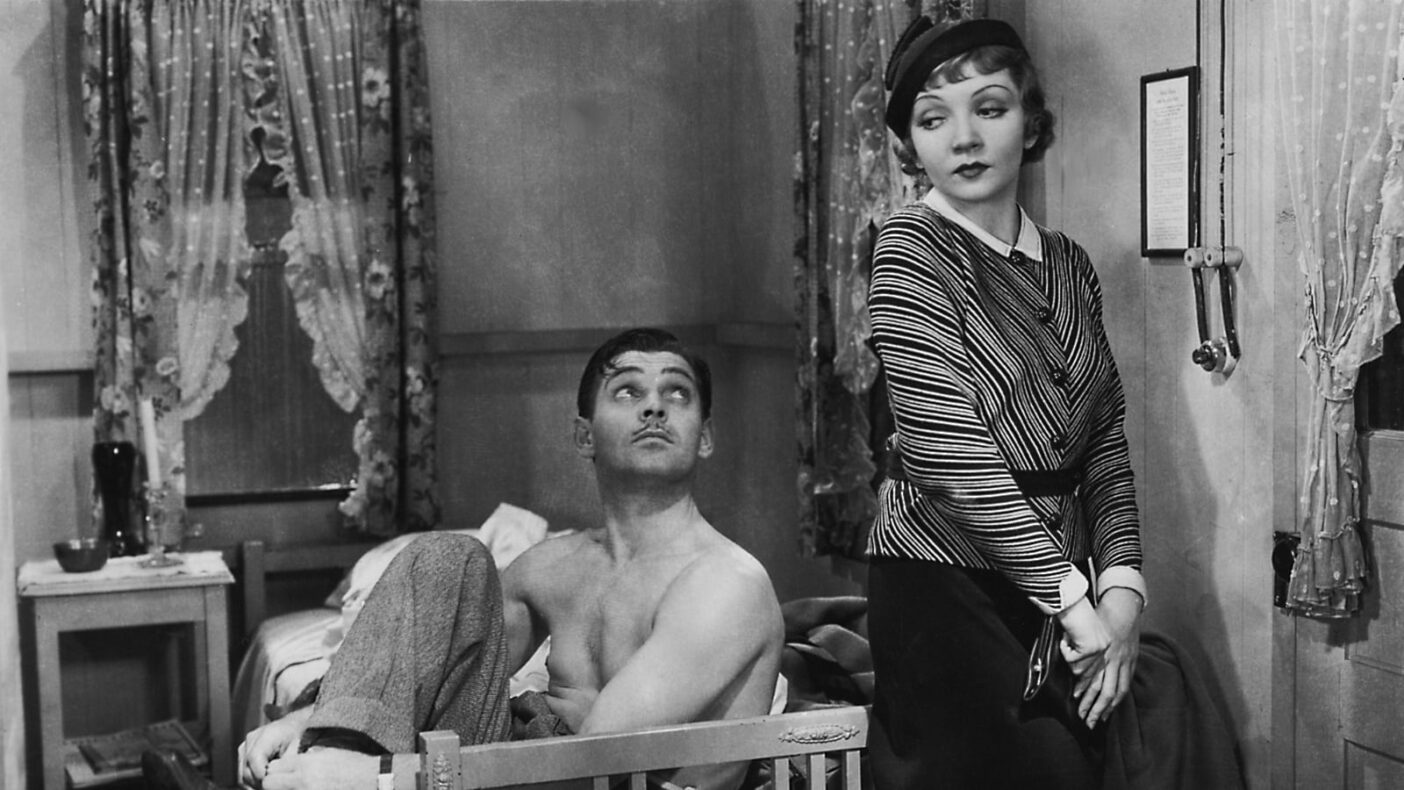
It Happened One Night is the quintessential romantic comedy. It may even be the zenith of the genre. It can be considered as such when one takes into account how influential the film was: the belligerent partnership turned budding romance, the road movie, the adventure flick. So many contemporary romances owe a great debt to this iconic gem from the pre-Hays Code era. In Frank Capra’s first classic, the director extracts two shining performances from his leads, demonstrates incredible pacing, and deftly conveys the ineffable experience of falling in love with sublime simplicity.
There is a relatively slow opening in It Happened One Night. However, this is not a criticism. Capra effectively establishes the fiery personalities of both leads within a single scene apiece: Ellie clashes fiercely with her father, while Peter drunkenly argues with his editor over the phone. This informs us that their inevitable romance will be anything but breezy; they are both stubborn types who are used to getting their way.
The unhurried beginning is then punctuated by a classic meet-cute. Ellie, haughty and averse to conversation, especially when faced with Peter’s sharp wit, clearly comes from a privileged background. In contrast, Peter’s humble origins define his identity. When Ellie’s extravagance clashes with Peter’s frugality, they naturally fall into the roles of the experienced pedagogue and spoiled student.
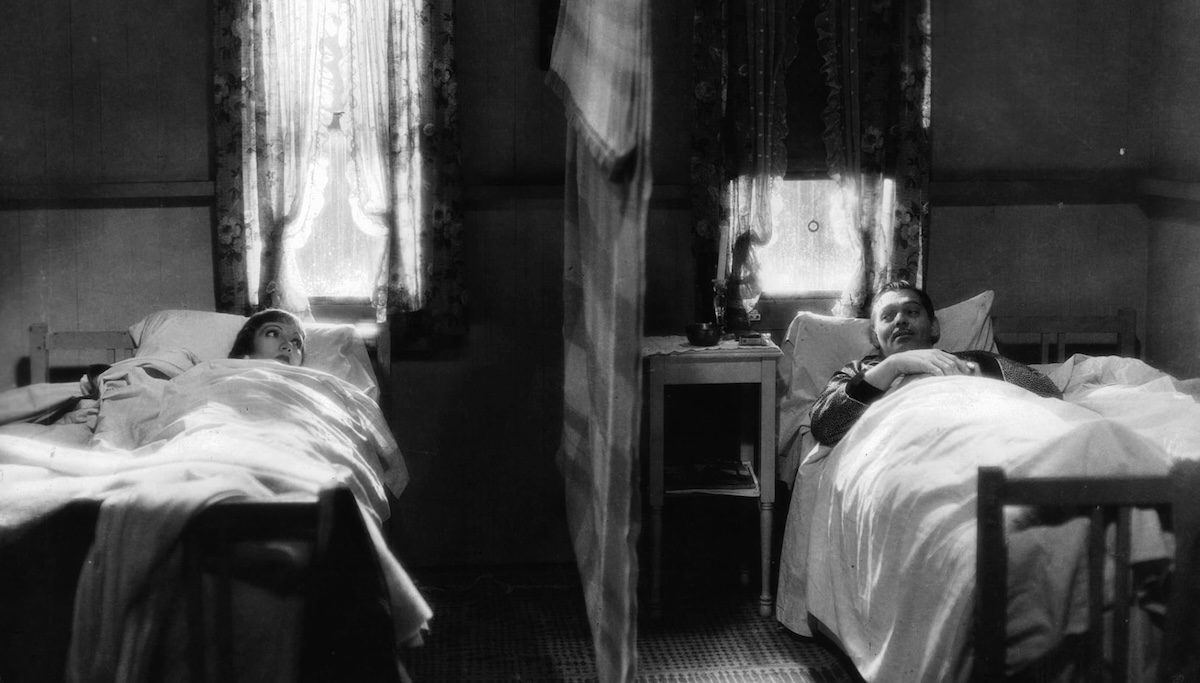
Surprisingly, the romance in their coupling develops quite slowly. Though Gable delivers a charming and intense performance, his interactions with Colbert lack any overtly sexual undertones. Peter is often terse, grumpy, and frequently unkind to Ellie: this makes him the first honest man she has ever met. He’s not after her money or her heart. Even when he playfully undresses in front of Ellie, it is decidedly unromantic. Instead, the two feel more like hesitant strangers who are slowly becoming friends, albeit begrudgingly.
Naturally, the dynamic shifts. Terror of capture and the exhilaration of escape forge a bond between them, one emulated countless times but rarely with such genuineness. In these moments, the potential for physical intimacy arises, apparent to them (though, as viewers, we were privy to it from the outset). Initially, their badinage, laced with wit and a touch of cruelty, reveals their veiled affection. Gradually, flirtation seeps into their exchanges, subtly woven into the narrative. Their love for each other makes them giddy, but the knowledge that it is ultimately doomed makes them bitter in a very honest way. Though we can all anticipate where the plot is going, we never feel rushed to get there.
This reveals one of Frank Capra’s greatest strengths as a filmmaker: pacing. In his famous 1960 BBC interview, Alfred Hitchcock proclaimed, “Drama is life with the dull bits left out.” Capra masterfully embodies this principle in It Happened One Night. The film never drags, keeping audiences perpetually engaged. The on-screen pair, Ellie and Peter, are not only funny and charismatic but also convincingly portrayed. Like any good road movie, it isn’t really about the destination—it’s about the journey. We revel as the pair get to know each other and scenes that are not important for the plot become the most memorable. Peter teaching Ellie how to dunk doughnuts in her coffee represents the edification of the bourgeoisie at the hands of the simple proletariat, while the walls of Jericho erected to protect Ellie’s modesty create romantic suspense for both the characters and the audience.
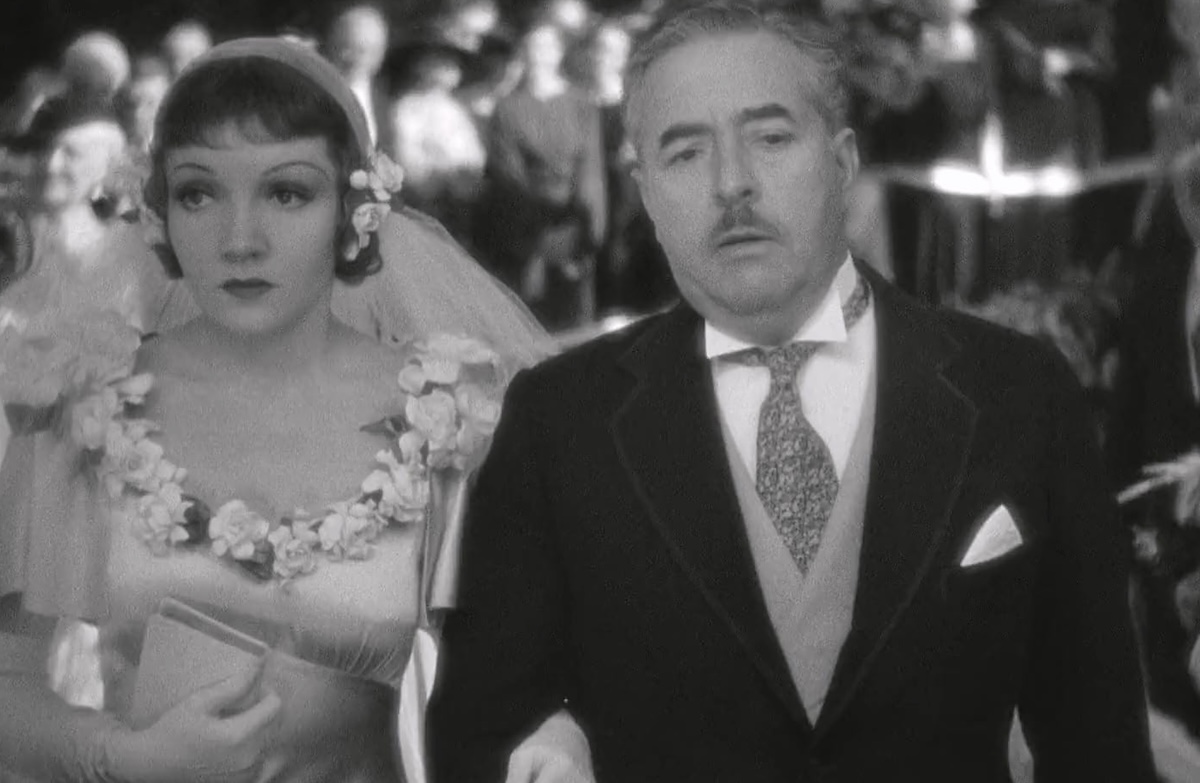
During the production of this film, both Columbia, the studio, and Capra, the director, resided in Poverty Row, a derogatory term for creators of B-movies in early cinema. Fittingly, Capra tackles the theme of wealth disparity in the US by pairing these two characters together. This exploration of money and its corrupting influence would become a lifelong leitmotif for the filmmaker, alongside his dedication to portraying the lives of ordinary people.
The 1930s, amidst the devastating economic fallout of the Great Depression, presented an unparalleled opportunity to resonate with the common man. During this bleak period, Capra offered both essential escapism and romanticised portrayals of the working class, providing solace to the impoverished masses of America. The scene of a bus filled with passengers singing cheerfully becomes a love letter to small communities, a motif that Capra would consistently employ throughout his career. While his portrayal of the divide between rich and poor never descends into malice, the disparity is undeniable, serving as an implicit rebuke to those who prioritise wealth over love.
This is something that Capra has been criticised for in the years following his career. Film historian Richard Griffiths argued that Capra’s masterful ability to forge cultural myths was so prodigious that he convinced America it was a uniform landscape of “tree-lined streets,” characterised by “undistinguished frame houses surrounded by modest areas of grass, a few automobiles.” However, the seductive simplicity of these portrayals has led some to argue they were never true answers at all. As John Cassavetes famously quipped, “Maybe there really wasn’t an America—it was only Frank Capra.” Indeed, Capra’s vision of a unified, universally benevolent society remains enchanting and serves as a powerful force of escapism even today.
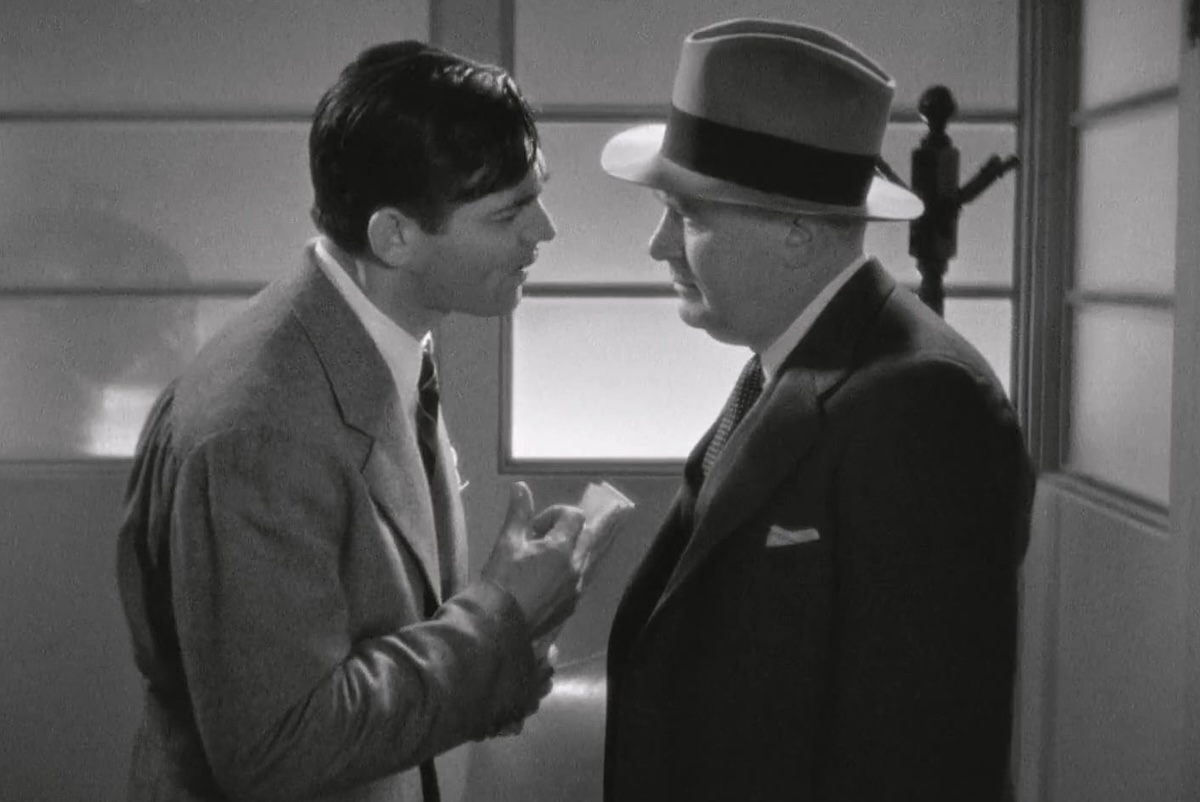
He was assisted in his depiction of such a world by the exquisite cinematography of Joseph Walker. Gable smoking in bed as the rain clatters on the windows behind him is beautifully shot, inducing nostalgia in audiences for a time they never knew. The scene between Peter and Ellie in the hay is magnificently lit; for a moment, you feel as though they are the only two people in the world.
Furthermore, the film is packed with iconic scenes that solidify its influence. One such scene depicts Ellie teaching Peter the art of hitchhiking. While Peter gets repeatedly ignored by passing drivers, Ellie manages to flag a ride as soon as she lifts her dress to expose her calf. This prompts her triumphant declaration, “I have proven once and for all that the limb is mightier than the thumb.” Interestingly, Colbert initially resisted the leg-baring act, only agreeing after deeming her body double’s appendage to be inadequate, exclaiming, “That is not my leg!”
Colbert also refused to undress on camera—this despite the fact she had done fully nude scenes twice previously in The Sign of the Cross (1932) and Cleopatra (1934)—which is how the walls of Jericho were introduced into the film. Capra surmised she was constantly irascible due to the fact she considered the film to be of subpar quality, one that may torpedo her career. The fact that one actress’ crotchety demeanour could go on to change a film and, as a consequence, influence many others, is an amusing thought.
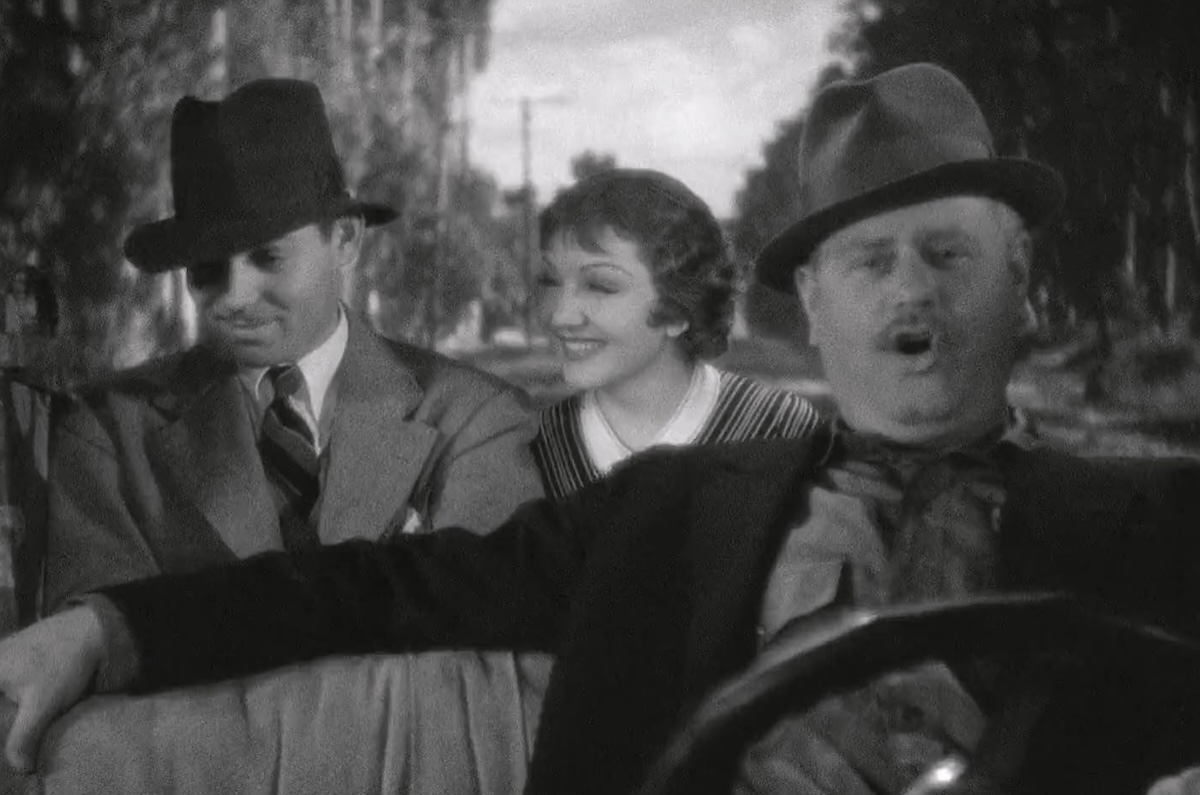
Despite both Colbert and Gable having reservations about doing the film, their performances never suffer as a result. Their chemistry is in large part why the film succeeds. Ellie passing the threshold, crossing the walls of Jericho and confessing her love for Peter with tears in her eyes, is the stuff that cinema is made of. It is both a moment of heightened drama and a powerfully symbolic moment: the symbol of their emotional and physical restraint has finally been traversed and there’s no going back. Delightfully, the film ends with one of cinema’s most polite euphemisms conveyed via telegram: “The walls of Jericho are crumbling.”
Right before the end, Peter types up the events of their journey and sells it to his editor for $1,000. Thinking he’s been duped, his editor throws it in the bin. But before he leaves his office, he can’t help but pull Peter’s story out of the bin for another read: it is simply too good. It enthrals with romance, humour, and hope. It ends on a soaring high: before The Graduate (1967), Runaway Bride (1999), or even Spider-Man 2 (2004) did it, Claudette Colbert ran away from the alter with her dress billowing behind her, determined to fall into the arms of the man she loves. It is a tear-jerking ode to the power of love and the tumultuous journey that is required to find it. It can be discovered in the most unlikely of places. In this case, it was found in the dead of night, on a cramped bus in Miami.
USA | 1934 | 105 MINUTES | 1.37:1 | BLACK & WHITE | ENGLISH

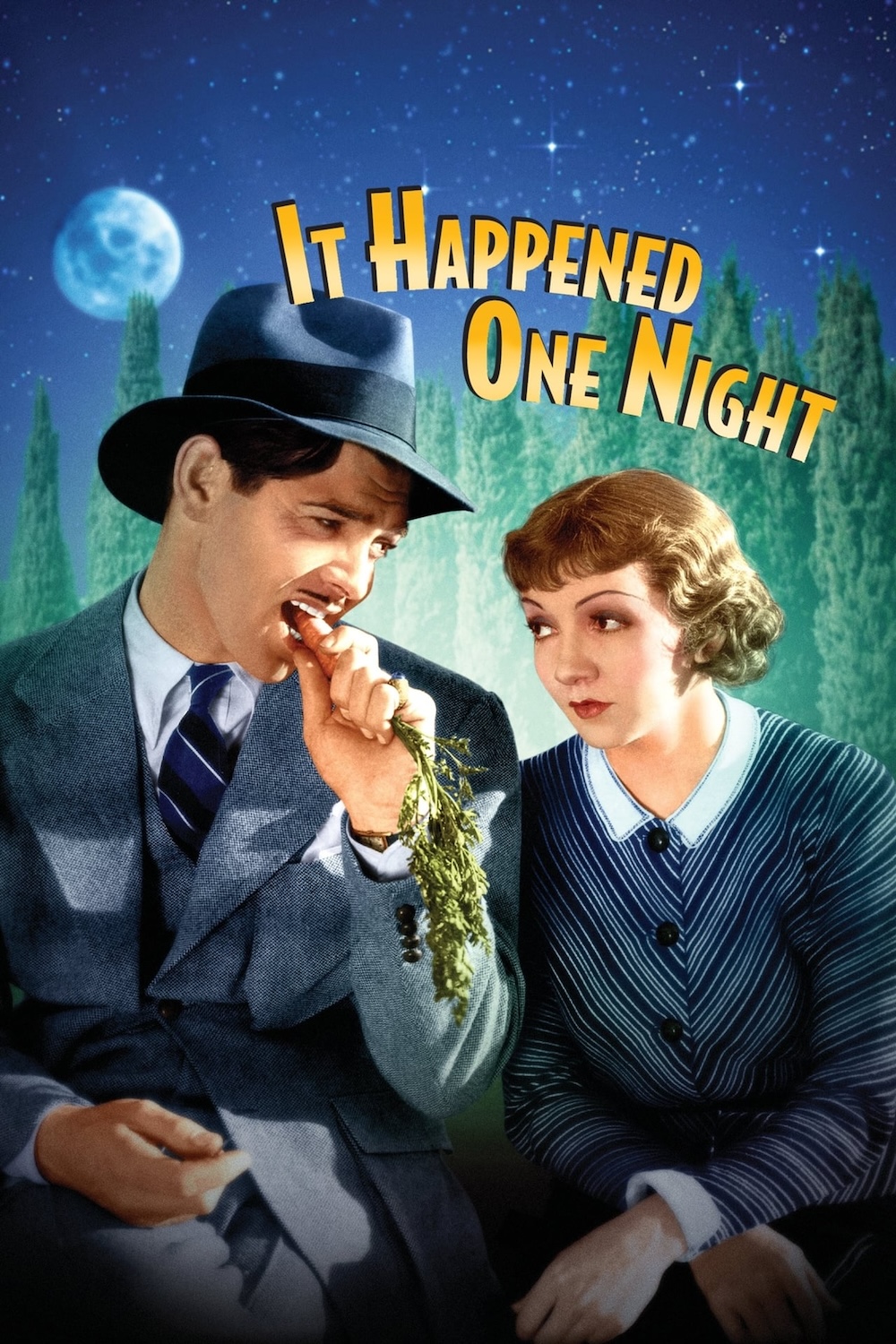
director: Frank Capra.
writer: Robert Riskin (based on the short story ‘Night Bus’ by Samuel Hopkins Adams).
starring: Clark Gable, Claudette Colbert, Walter Connolly, Roscoe Karns & Jameson Thomas.
